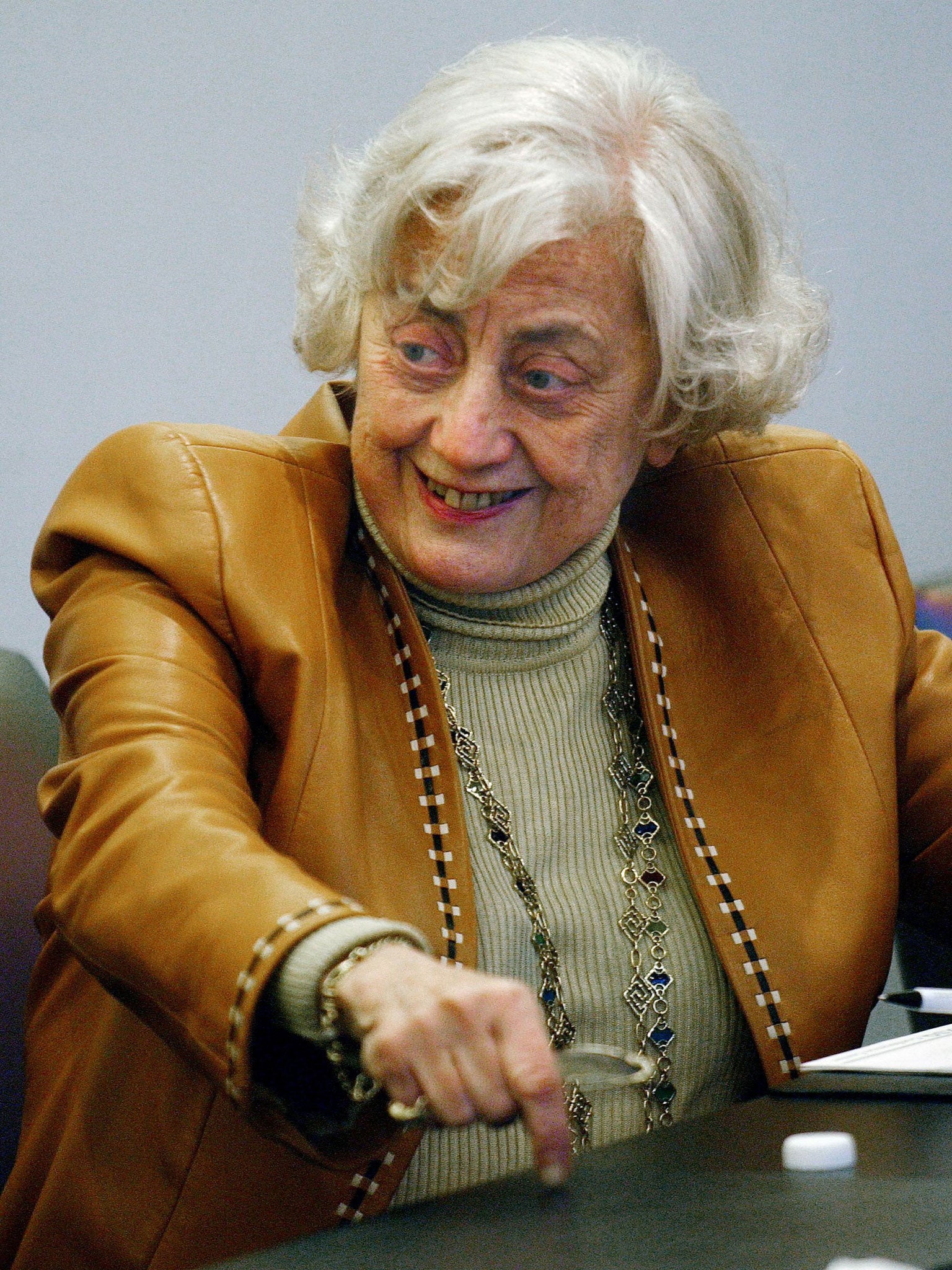Muriel Siebert: The first woman on the New York Stock Exchange

Your support helps us to tell the story
From reproductive rights to climate change to Big Tech, The Independent is on the ground when the story is developing. Whether it's investigating the financials of Elon Musk's pro-Trump PAC or producing our latest documentary, 'The A Word', which shines a light on the American women fighting for reproductive rights, we know how important it is to parse out the facts from the messaging.
At such a critical moment in US history, we need reporters on the ground. Your donation allows us to keep sending journalists to speak to both sides of the story.
The Independent is trusted by Americans across the entire political spectrum. And unlike many other quality news outlets, we choose not to lock Americans out of our reporting and analysis with paywalls. We believe quality journalism should be available to everyone, paid for by those who can afford it.
Your support makes all the difference.Muriel Siebert's success as one of Wall Street's early female analysts earned her the contacts and nest egg to become the first woman to buy a seat on the New York Stock Exchange. Until she paid $445,000 for one of the NYSE's 1,366 memberships in 1967, women had only been allowed on the trading floor as clerks and pages to fill shortages during wartime.
The lack of enthusiasm for welcoming a female colleague was evident, "Mickie" Siebert said, in her difficult search for the two sponsors she needed under membership rules. "There was all manner of concern for my delicate ears — with several articles postulating that a woman couldn't handle the rough language of Wall Street — and many comments about the absence of a ladies' room on the Stock Exchange floor," Siebert recalled in her 2002 memoir Changing the Rules: Adventures of a Wall Street Maverick. "Not since I was a baby had so many people been so interested in my bathroom habits."
Siebert's revolution was at least partly symbolic, since she did most of her work away from the floor, researching companies and advising clients of her sole-proprietor firm. Her stock-exchange membership meant that she could, when she desired, handle the actual buying and selling of securities, giving her a larger share of commissions.
She went on to serve five years as New York State's first female superintendent of banks. Following an unsuccessful bid for the Republican nomination for the Senate in 1982, she returned to her brokerage, which she took public in 1996.
In 1975, when the Securities and Exchange Commission moved Wall Street from fixed commissions to negotiated ones, Siebert had retooled Muriel Siebert & Co into a discount brokerage, cutting her rate in half for individual investors. She offered clients the option to trade online, and for two brief periods in 1999, as internet-related stocks soared, she was a paper billionaire. Within months, some $700m of that disappeared. "The day-traders giveth and the day-traders taketh away," she said. Of her paper billion, she added, "At least I didn't write a cheque for that amount."
She was born in Cleveland in 1932, the daughter of a dentist. She left home for the first time in 1953 for a summer trip to New York with friends. During a guided tour of the NYSE she remembered looking down from the visitor's gallery at a "sea of men in dark suits."
In 1954, she drove to New York in a used Studebaker to live with her older sister, who was working in public relations. She unsuccessfully sought jobs at the United Nations and Merrill Lynch before deciding she would have to lie about lacking a college degree. The trick worked at her next interview, with Bache & Co., which hired her as a research department trainee at $65 a week. She got her start as an analyst covering entertainment companies, then the aviation industry, at a time when railroads still dominated transport discussions on Wall Street.
"It wasn't long before jets revitalised the industry," she wrote, "and eventually commercial jets came along. I was at the threshold of a major chapter in economic history."
Siebert worked on Wall Street in the research department of Shields & Co from 1958 to 1960, then became a partner at Stearns & Co. She broke into trading at Finkle & Co, urging her clients to buy Boeing shares before it introduced its top-selling 737.
By 1965, when she became a partner at Brimberg & Co, she was earning $250,000 a year, but "When I started to bring in institutions on the research that I was doing, I wasn't being paid what the men were making," she recalled. "Don't misunderstand me: I was making a lot of money then. I was making a couple hundred thousand dollars a year — that was back in 1967. And I asked a client, where can I go where I can get credit on the business I do? What big firm could I go to? He said, 'Don't be ridiculous. Buy a seat, work for yourself.'"
With her accumulating wealth, she took flying lessons and bought fur coats and a Mercedes-Benz 350SL. "Do not be afraid to go into uncharted territories," she told students in a college commencement speech. "You might find some pretty good things there."
Laurence Arnold, Washington Post
Muriel Siebert, financial analyst: born Cleveland, Ohio 12 September 1932; died New York 24 August 2013.
Join our commenting forum
Join thought-provoking conversations, follow other Independent readers and see their replies
Comments